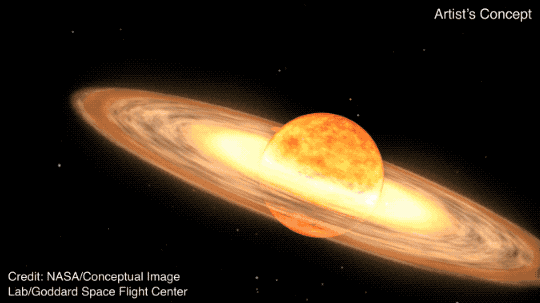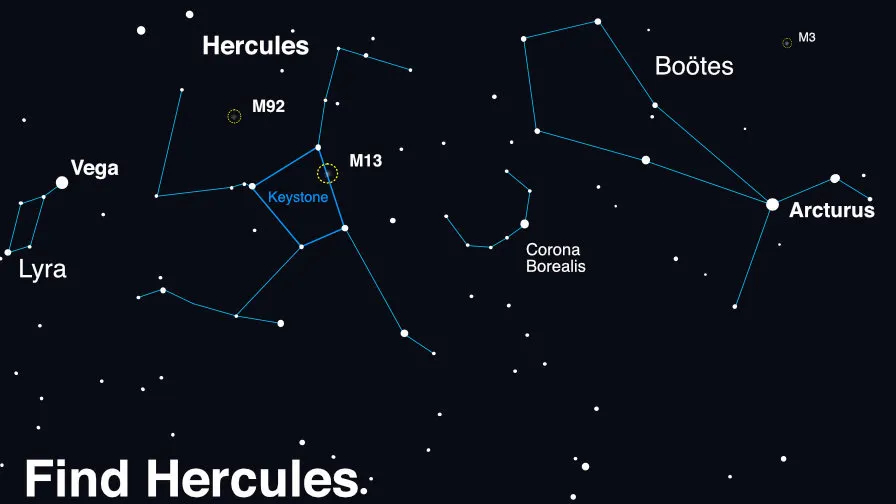A 'new star' will appear in the sky any night now. Here's how to watch the Blaze Star ignite.
The "Blaze Star" T Coronae Borealis is expected to erupt with a magnificent explosion sometime between now and September, becoming visible to the naked eye. Here's how to find it when it does.

A dim star in the night sky 3,000 light-years from our solar system could soon become visible to the naked eye for the first time since 1946 — and you can easily find it in the night sky.
The "Blaze Star" — officially called T Coronae Borealis (T CrB) — is expected to brighten significantly between now and September 2024 from magnitude +10 (beyond naked-eye visibility) to magnitude +2, according to NASA. That's about the same brightness as Polaris, the North Star, the 48th-brightest star in the night sky. (In astronomy, the brighter an object is, the lower its magnitude; the full moon's magnitude is -12.6, for example).
The Blaze Star can be found in the constellation Corona Borealis, the "Northern Crown," between the constellations of Boötes and Hercules. The easiest way of finding Corona Borealis is by first locating some of the brightest stars in the summer night sky.
On any clear night, find the stars of the Big Dipper high in the northern sky. Trace the Big Dipper's handle of stars in a curve to Arcturus, a bright, reddish star above the eastern horizon. That's the famous "arc to Arcturus" star-hop. Rising in the east-northeast will be Vega. Now look between Arcturus and Vega (slightly closer to Arcturus) for a faint curl of seven stars — Corona Borealis. It will be high overhead after dark.
Though you won't be able to see the Blaze Star yet, it should become clearly visible before summer's end.
To get an even better sense of where the star will appear, you can watch an upcoming livestream courtesy of the Virtual Telescope Project. On June 24, an asteroid called Pallas will appear to pass exceptionally close to the Blaze Star's location in the sky. (In reality, they are thousands of light-years apart). Astronomers will stream the asteroid's flyby starting at 4pm ET on June 24, pointing out the Blaze Star's location during the event.
Related: The 1st 'major lunar standstill' in more than 18 years is about to occur. Here's how to see it.

Why does the 'Blaze Star' blaze?
The Blaze Star is a rare example of a recurrent nova, which means "new star" in Latin. It's a binary star system with a cool, red giant star and a smaller, hotter white dwarf star orbiting each other. Every 80 years, the red giant propels matter onto the surface of the white dwarf, causing an explosion. Other stars do something similar, but not on such a short timescale.
Sign up for the Live Science daily newsletter now
Get the world’s most fascinating discoveries delivered straight to your inbox.
Astronomers think the Blaze Star is on the cusp of exploding again because it's following the same pattern as the last two explosions in 1866 and 1946. Ten years before both explosions, it got somewhat brighter, then finally dimmed again just before the big blast. That's precisely what's been happening, with the star growing brighter since 2015, followed by a visible dimming in March 2023. This familiar pattern suggests that another explosion is imminent.
On February 10, 1946, the Blaze Star was 600 times brighter than it was just one week before. Once its brightness peaks, the Blaze Star should be visible to the naked eye for several days and just over a week with a pair of stargazing binoculars or a good small telescope.
Editor's note: This article was updated on June 20th to include new information about the Virtual Telescope Project livestream.

Jamie Carter is a freelance journalist and regular Live Science contributor based in Cardiff, U.K. He is the author of A Stargazing Program For Beginners and lectures on astronomy and the natural world. Jamie regularly writes for Space.com, TechRadar.com, Forbes Science, BBC Wildlife magazine and Scientific American, and many others. He edits WhenIsTheNextEclipse.com.









